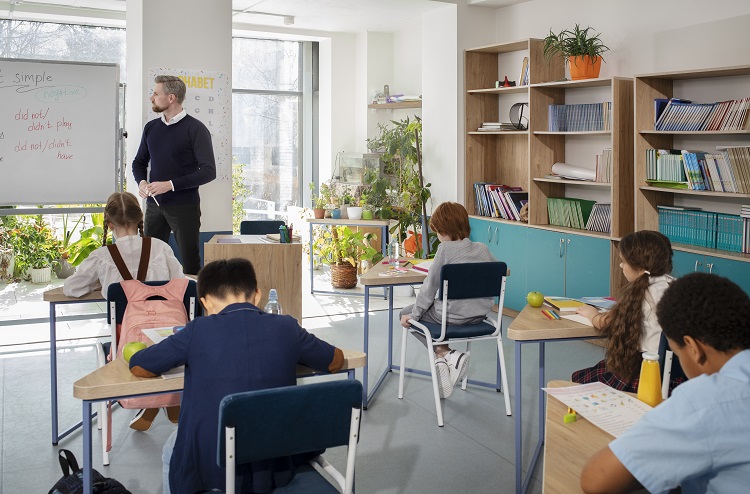รากเทียมช่วยทดแทนฟันที่สูญเสียไปได้อย่างไร

การสูญเสียฟันไม่ว่าจะเกิดจากอุบัติเหตุ การติดเชื้อ หรือโรคฟันผุ สามารถส่งผลกระทบต่อสุขภาพปากและความมั่นใจของเรา การทดแทนฟันที่สูญเสียไปด้วยรากเทียมเป็นวิธีที่ทันสมัยและมีประสิทธิภาพในการคืนความสวยงามและการใช้งานของฟันในช่องปาก มาดูกันว่ารากเทียมช่วยทดแทนฟันที่สูญเสียไปได้อย่างไรค่ะ
รากเทียมคืออะไร
รากเทียม (Dental Implant) คือวัสดุที่ทำจากไทเทเนียมหรือเซรามิกที่ใช้ฝังลงไปในกระดูกขากรรไกรเพื่อทำหน้าที่เป็นรากฟันเทียม รากเทียมจะเชื่อมต่อกับกระดูกขากรรไกรอย่างแน่นหนาและสามารถรองรับฟันปลอมที่ทำขึ้นมาเฉพาะบุคคลได้
ขั้นตอนการติดตั้งรากเทียม
การวินิจฉัยและการวางแผนการรักษา: ทันตแพทย์จะตรวจสอบสภาพปากและฟันของผู้ป่วย และใช้ภาพถ่าย X-ray หรือ CT scan เพื่อวางแผนการฝังรากเทียมอย่างละเอียด
การฝังรากเทียม: ขั้นตอนนี้จะเริ่มด้วยการฝังรากเทียมลงในกระดูกขากรรไกร ผ่านการผ่าตัดเล็ก โดยใช้ยาชาหรือยาสลบเพื่อความสะดวกสบายของผู้ป่วย
การรอการเชื่อมต่อ: ระยะเวลาที่รากเทียมเชื่อมต่อกับกระดูกขากรรไกรอาจใช้เวลาหลายสัปดาห์ถึงหลายเดือน ขึ้นอยู่กับสภาพกระดูกของผู้ป่วย
การติดตั้งฟันปลอม: เมื่อรากเทียมเชื่อมต่อกับกระดูกเรียบร้อยแล้ว ทันตแพทย์จะทำการติดตั้งฟันปลอมที่ทำขึ้นมาเฉพาะบุคคล
ประโยชน์ของรากเทียม
เพิ่มความมั่นใจ: รากเทียมช่วยให้ฟันดูเป็นธรรมชาติและสามารถยิ้มได้อย่างมั่นใจ
ปรับปรุงการเคี้ยวอาหาร: รากเทียมมีความแข็งแรงและเสถียร ทำให้การเคี้ยวอาหารเป็นไปอย่างมีประสิทธิภาพ
รักษากระดูกขากรรไกร: การฝังรากเทียมช่วยกระตุ้นการเจริญเติบโตของกระดูกขากรรไกรและป้องกันการสลายตัวของกระดูก
เพิ่มความสะดวกสบาย: รากเทียมมีความทนทานและไม่ต้องการการดูแลที่ซับซ้อนเหมือนฟันปลอมแบบถอดได้
การดูแลรักษารากเทียม
การทำความสะอาด: ทำความสะอาดฟันและรากเทียมอย่างละเอียดด้วยการแปรงฟันและใช้ไหมขัดฟัน
การตรวจสุขภาพปากและฟัน: ควรไปพบแพทย์เป็นประจำเพื่อให้แน่ใจว่ารากเทียมและฟันปลอมยังอยู่ในสภาพดี
หลีกเลี่ยงการเคี้ยวของแข็ง: ควรหลีกเลี่ยงการเคี้ยวของแข็งเช่น กระดูก หรืออาหารที่มีความเหนียวมาก
ผู้อ่านท่านใดที่มีความสนใจ อยากเข้ารับการทำรากเทียม สามารถสอบถามรายละเอียดเพิ่มเติมได้ที่ ศูนย์ทันตกรรมตกแต่งเพื่อความงาม PMDC ครบวงจร ที่พร้อมดูแลคุณโดยทันตแพทย์มากประสบการณ์หลายท่าน ติดตามผลการรักษาอย่างใส่ใจ พร้อมมอบรอยยิ้มที่มั่นใจให้กับคุณค่ะ
Sculptra แก้ปัญหาผิวอะไรได้บ้าง

เมื่ออายุมากขึ้นกลไกในการผลิตคอลลาเจนตามธรรมชาติก็จะน้อยลง ส่งผลให้ผิวหย่อนคล้อย ผิวมีริ้วรอย จึงจำเป็นที่จะต้องกระตุ้นคอลลาเจนในชั้นผิวขึ้นมา ด้วยนวัตกรรม Sculptra เป็นผลิตภัณฑ์ฉีดผิวหนังที่ใช้แก้ปัญหาต่างๆ ที่เกี่ยวข้องกับการสูญเสียปริมาตรและความยืดหยุ่นของผิวหนัง โดยเฉพาะบนใบหน้า ประโยชน์หลักๆ ของ Sculptra ช่วยแก้ปัญหาผิวได้ดังนี้
Sculptra คืออะไร
Sculptra คือ สารกำเนิดคอลลาเจนในรูปแบบฉีด ที่ประกอบด้วยไหมน้ำชนิด PLLA (Poly-L-Lactic acid) ซึ่งเป็นหนึ่งใน สารกระตุ้นคอลลาเจน ที่เรียกว่า Biostimulator ช่วยกระตุ้นให้ผิวเกิดการสร้างคอลลาเจนด้วยตัวเอง ได้ถึง 66.5% เติมเต็ม ยกกระชับใบหน้า ฟื้นฟูผิว ได้นานถึง 2 ปี
แก้ไขริ้วรอยลึกและร่องลึก: Sculptra สามารถช่วยเติมเต็มริ้วรอยลึกและร่องลึกบนใบหน้า เช่น ร่องแก้ม ร่องมุมปาก และริ้วรอยรอบดวงตา ทำให้ผิวดูเรียบเนียนและอ่อนเยาว์ขึ้น
เพิ่มปริมาตรให้กับใบหน้า: เมื่อเราอายุมากขึ้น ไขมันและคอลลาเจนในผิวหนังจะลดลง ทำให้ใบหน้าดูเหี่ยวและไม่มีชีวิตชีวา Sculptra สามารถช่วยคืนปริมาตรให้กับใบหน้า เช่น บริเวณแก้ม ขมับ และคาง
กระตุ้นการสร้างคอลลาเจน: สาร Poly-L-Lactic Acid (PLLA) ใน Sculptra จะช่วยกระตุ้นการสร้างคอลลาเจนใหม่ในผิว ทำให้ผิวหนังมีความยืดหยุ่นและแข็งแรงขึ้นในระยะยาว
ปรับปรุงความกระชับของผิว: ด้วยการเพิ่มปริมาตรและการสร้างคอลลาเจน ผิวหน้าจะดูแน่นและกระชับขึ้น ลดการหย่อนคล้อยของผิวหนัง
แก้ปัญหาผิวหมองคล้ำ: ช่วยฟื้นฟูผิวที่อ่อนล้า ขาดความชุ่มชื้น ให้ผิวพรรณเปล่งปลั่ง กระจ่างใสมากยิ่งขึ้น
ฟื้นฟูรูปลักษณ์โดยรวมของใบหน้า: การใช้ Sculptra อย่างเหมาะสมจะช่วยฟื้นฟูรูปลักษณ์โดยรวมของใบหน้า ทำให้ดูอ่อนเยาว์และสดใสมากขึ้น
การรักษาด้วย Sculptra มักจะต้องทำเป็นชุดของการฉีดหลายครั้งในระยะเวลาหลายเดือน เพื่อให้ได้ผลลัพธ์ที่ดีที่สุดและยาวนาน การปรึกษากับแพทย์หรือผู้เชี่ยวชาญทางด้านผิวหนังจะช่วยให้คุณทราบถึงความเหมาะสมและแผนการรักษาที่ดีที่สุดสำหรับคุณ Sculptra ราคามักจะไม่แตกต่างกันในแต่ละสถานพยาบาล แต่อาจจะต่างกันในเรื่องของวิธีการฉีด และประสบการณ์ของแพทย์ ซึ่งที่อิสสวีร์เราใช้เทคนิคการฝังคอลลาเจน3ทิศทาง ทำให้ได้ผลลัพธ์สูงสุด คุ้มค่าต่อการฉีดและผลลัพธ์ที่ได้อยู่นานถึง 2 ปี
[Top]Essential Steps to Prepare Your Child for Enrollment in a Thailand International School

As the global landscape evolves, so does the demand for quality education. Parents seeking to provide their children with an enriching and globally minded learning experience often turn to international schools. The allure of Thailand international school is particularly strong, with a diverse range of institutions offering world-class curricula and opportunities for cultural exchange. However, preparing for enrollment in a Thailand international school requires careful planning and consideration. Here are some essential steps to guide parents through the process:
Researching Schools
Begin by researching the various international schools available in Thailand. Consider factors such as curriculum, accreditation, facilities, extracurricular activities, and school ethos. Websites, school visits, and recommendations from other parents can provide valuable insights into each institution’s strengths and values.
Understanding Admission Requirements
Each international school in Thailand may have its own set of admission requirements and procedures. These typically include academic transcripts, standardized test scores, recommendation letters, and an application fee. Familiarize yourself with the specific requirements of your chosen schools and ensure that you have all necessary documents prepared in advance.
Planning Ahead
Admissions processes for Thailand international schools can be competitive, particularly for popular institutions and sought-after grade levels. Plan ahead and be mindful of application deadlines, which may vary from school to school. Early preparation can help alleviate stress and ensure that your child’s application receives full consideration.
Engaging with the Community
Many Thailand international schools place a strong emphasis on community involvement and cultural diversity. Take the opportunity to engage with the school community through open houses, parent orientation sessions, and networking events. Building connections with current parents, faculty, and staff can provide valuable support and insights throughout the enrollment process.
Preparing Your Child
Transitioning to a new school, especially in a different country, can be a significant adjustment for children. Take proactive steps to prepare your child for the transition by discussing the move openly, addressing any concerns or questions they may have, and involving them in the decision-making process. Encourage your child to embrace new experiences and opportunities for personal growth.
Considering Logistics
Moving to Thailand for your child’s education involves logistical considerations such as housing, healthcare, visa requirements, and transportation. Research these aspects thoroughly and plan accordingly to ensure a smooth transition for your family.
Cultivating Cultural Awareness
Embrace the opportunity to expose your child to Thailand’s rich culture and heritage. Encourage them to learn about Thai customs, traditions, language, and history, both before and after their enrollment in an international school Thailand. Building cultural awareness and sensitivity will enhance your child’s overall educational experience and facilitate integration into their new environment.
In conclusion, preparing for your child’s enrollment in a Thailand international school requires careful planning, research, and engagement with the school community. By taking proactive steps and embracing the opportunities for cultural exchange and personal growth, you can provide your child with a transformative educational experience that prepares them for success in an increasingly interconnected world.
[Top]Why Choose a British School?

In an era where people from different countries can easily meet each other, whether by traveling across countries or using technology to communicate, get to know new people from different cultures. In addition, you have to work with foreigners from many different countries. Using English as a medium of communication is important for your children’s future success. This is why it is a good idea to send your children to study at a British school.
1. The British curriculum teaches children what they like.
The British curriculum at British school is the education system with the longest history and is taught according to the British Ministry of Education. The highlight of this curriculum is that it focuses on teaching children to find themselves through teaching and self-studying. In this course, students will study many subjects so that students know what subjects they like or don’t like. This will prepare them for the next level of study. At the next level, students will study intensively on certain subjects that they like and use them to apply for further study only.
The British curriculum teaches children what they were born to do so that they can develop what they love into a career that they may have to live with for the rest of their lives. Studying therefore teaches not only academics but also other activities such as sports and arts. These things will help encourage them to continue with what they like for a better future for themselves.
2. British school teach students to make bold decisions.
Of course, English schools have good standards and quality that are used to teach students to be quality people according to the curriculum that has been used. Studying an international curriculum not only teaches academics, but also teaches how to live and learn on your own. This will help you understand the world more, teaching children to be adults able to take care of themselves and make decisions.
3. British school teach children to be good citizens of the world.
Being a good citizen of the world requires having concepts and principles that lead to working with people around the world. Being aware of being a global citizen will help you to adapt to others. If students understand multiculturalism, it will help them understand each other’s differences, be able to adapt to work together, and communicate with each other.
Studying at a British international school is more than just a place to study, it is a place where students can learn about themselves and others. They also learned about multiculturalism and promoted understanding of others. In addition, English is used in everyday life, which gives students the opportunity to learn about the wider world beyond just Thailand.
[Top]Exploring the Rich Tradition and Modern Advantages of Boarding Schools in Thailand

Nestled within the vibrant tapestry of Thailand’s educational landscape are its renowned boarding schools, institutions that seamlessly blend rich tradition with modern educational advantages. These institutions stand as pillars of academic excellence, cultural immersion, and holistic development. In this article, we delve into the unique characteristics and benefits offered by boarding school in Thailand, shedding light on why they remain a preferred choice for many students and families.
Embracing Tradition
At the heart of boarding schools in Thailand lies a deep-rooted tradition of academic rigor and cultural heritage. Many of these schools boast a history spanning decades, if not centuries, infused with the values and customs that define Thai society. From ceremonial practices to cultural celebrations, students in these institutions are immersed in the essence of Thai culture, fostering a sense of identity and belonging that extends far beyond the classroom.
Academic Excellence
Beyond tradition, boarding schools in Thailand are renowned for their commitment to academic excellence. Equipped with state-of-the-art facilities and a dedicated faculty, these institutions offer a rigorous curriculum that prepares students for success both nationally and internationally. Whether pursuing the Thai national curriculum or an internationally recognized program such as the International Baccalaureate (IB), students receive a well-rounded education that emphasizes critical thinking, creativity, and global awareness.
Holistic Development
What sets boarding schools in Thailand apart is their emphasis on holistic development. Recognizing that education extends beyond academics, these institutions strive to nurture students’ intellectual, physical, and emotional well-being. From sports and extracurricular activities to leadership opportunities and community service initiatives, students are encouraged to explore their passions and talents, fostering personal growth and resilience.
Cultural Immersion
One of the most significant advantages of attending a boarding school in Thailand is the opportunity for cultural immersion. Surrounded by peers from diverse backgrounds and guided by faculty who are passionate about preserving Thai traditions, students gain a deep appreciation for the country’s rich cultural heritage. Whether participating in traditional Thai dance performances, learning the art of Muay Thai, or celebrating Thai festivals, students develop a global perspective grounded in local traditions.
Global Outlook
While rooted in Thai culture, boarding schools in Thailand also provide students with a global outlook. Many institutions offer international exchange programs, allowing students to interact with peers from around the world and experience different cultures firsthand. Additionally, the emphasis on English language proficiency equips students with the skills necessary to thrive in an increasingly interconnected world, opening doors to higher education and career opportunities both in Thailand and abroad.
In conclusion, boarding schools in Thailand offer a unique blend of tradition and modernity, providing students with a holistic education that prepares them for success in an ever-changing world. From academic excellence to cultural immersion, these institutions foster a sense of community, curiosity, and global citizenship that extends far beyond graduation. For students seeking a transformative educational experience, boarding schools in Thailand stand as beacons of opportunity, shaping the leaders of tomorrow with a firm foundation in tradition and a forward-looking perspective.
[Top]